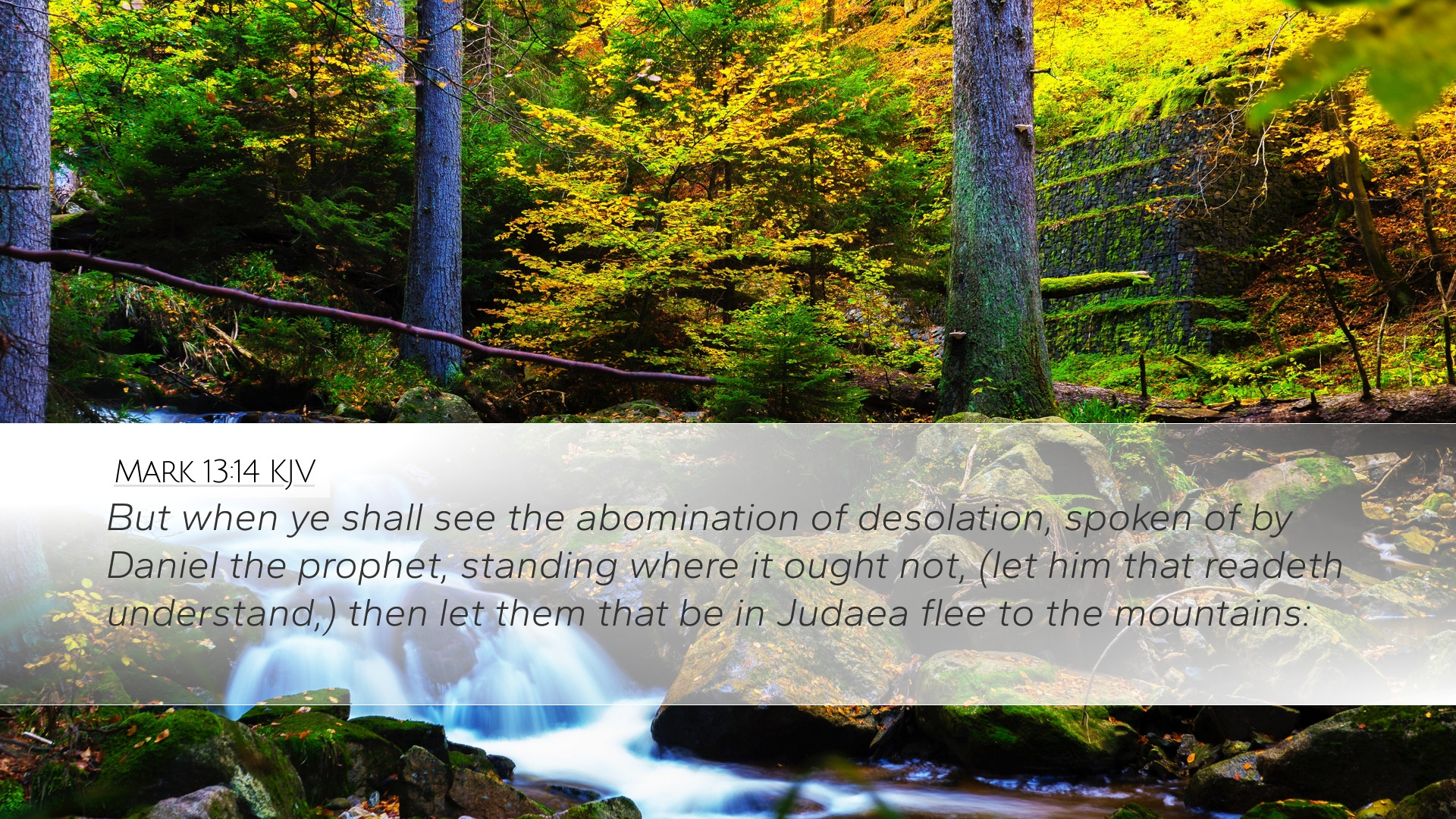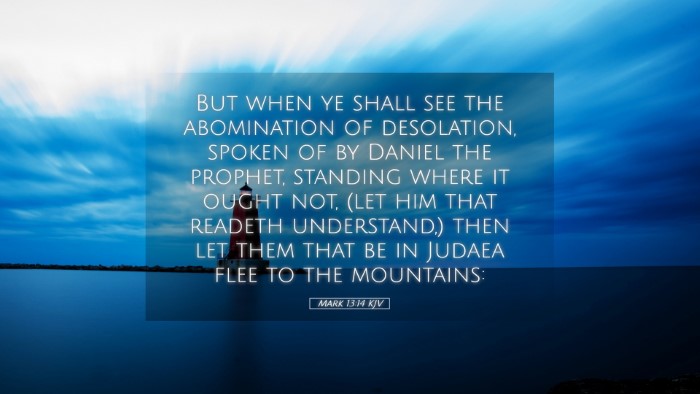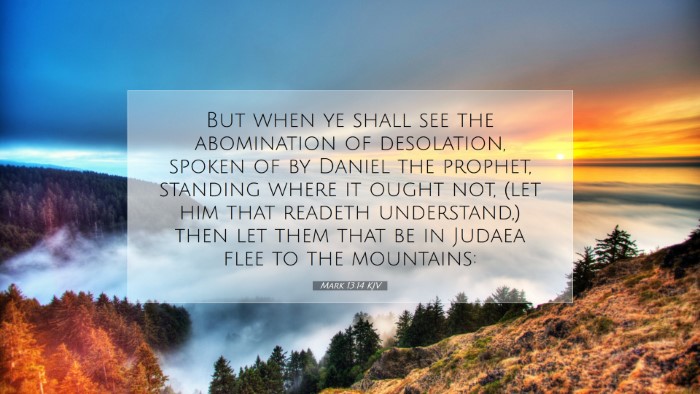Old Testament
Genesis Exodus Leviticus Numbers Deuteronomy Joshua Judges Ruth 1 Samuel 2 Samuel 1 Kings 2 Kings 1 Chronicles 2 Chronicles Ezra Nehemiah Esther Job Psalms Proverbs Ecclesiastes Song of Solomon Isaiah Jeremiah Lamentations Ezekiel Daniel Hosea Joel Amos Obadiah Jonah Micah Nahum Habakkuk Zephaniah Haggai Zechariah MalachiVerse
Mark 13:1 Mark 13:2 Mark 13:3 Mark 13:4 Mark 13:5 Mark 13:6 Mark 13:7 Mark 13:8 Mark 13:9 Mark 13:10 Mark 13:11 Mark 13:12 Mark 13:13 Mark 13:14 Mark 13:15 Mark 13:16 Mark 13:17 Mark 13:18 Mark 13:19 Mark 13:20 Mark 13:21 Mark 13:22 Mark 13:23 Mark 13:24 Mark 13:25 Mark 13:26 Mark 13:27 Mark 13:28 Mark 13:29 Mark 13:30 Mark 13:31 Mark 13:32 Mark 13:33 Mark 13:34 Mark 13:35 Mark 13:36 Mark 13:37

